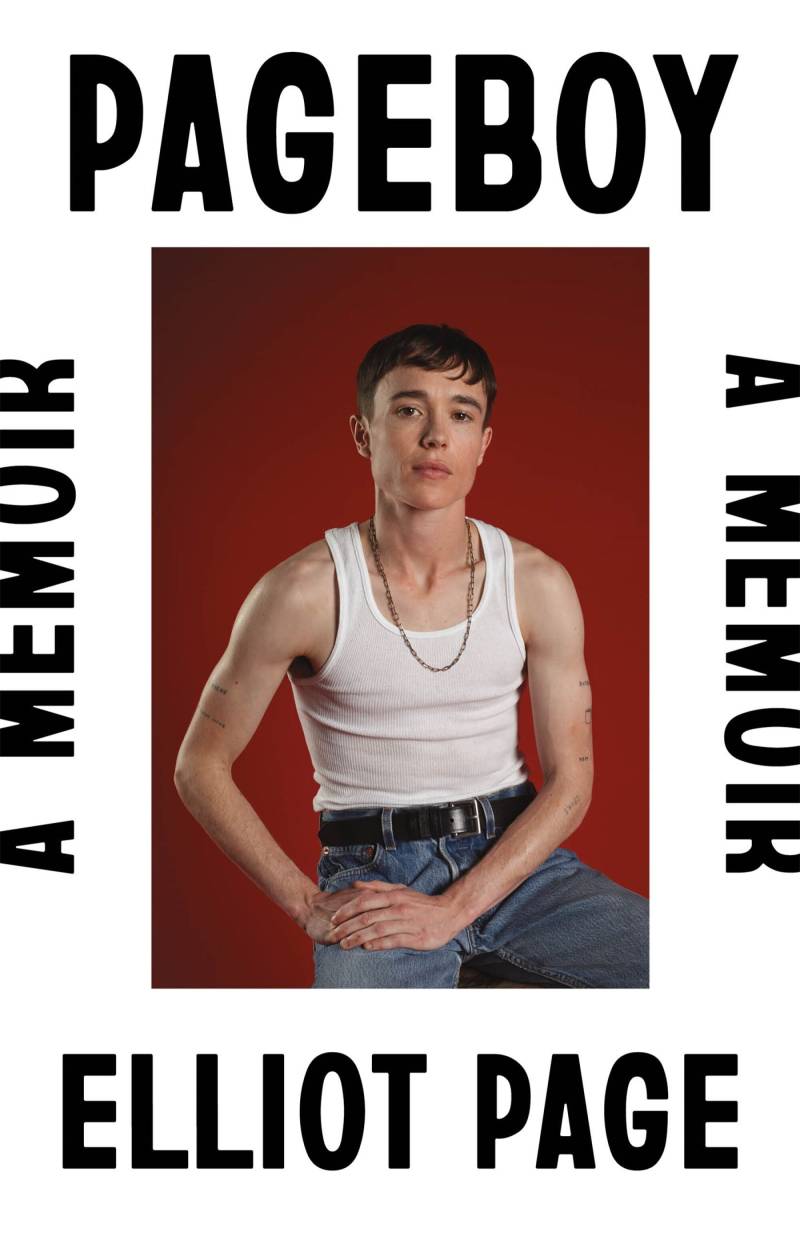It’s an enormous shame — and likely a legally prescribed one — that Page doesn’t name names here.
The party incident is not the only time Page doesn’t point fingers as directly as I wish he could. Page writes extensively of a closeted actress that he met while making a movie together. They had a prolonged secret affair that ended in heartbreak for Page — a pain made worse by running into her at a party while she was on a date with a man. I would be lying if I said I didn’t go straight to IMDB to try and figure out which costar Page was describing. (I failed.)
Thankfully, it’s much easier to discern which “world-renowned photographer” once gave Page a hard time at a magazine shoot. Based on the clues in the story, it’s almost certainly about a Vanity Fair shoot with Annie Liebovitz in which Page was forced to don a tight blue dress and red heels. Looking back at the photos now, it’s impossible not to notice his defeated slump.
What makes reading all of the hardships in Pageboy bearable are the passages celebrating the relief of slowly finding the strength and support to be his authentic self. Describing his coming out in 2014, Page’s newfound feeling of liberation screams out from the page. (“I had a burgeoning sense of ease in the world, a confidence … This time of firsts and newfound boldness was also, unsurprisingly perhaps, the most promiscuous period of my life.”)
Similarly, the relief after Page’s first gender-affirming surgery is blissful to read after so many sections about fear and the struggle to come out as transgender. “Mark picked me up after the three-or-so-hour procedure,” Page relays in the book’s penultimate chapter. “He took a photo of me … high as fuck, wearing a black compression vest, my nipples just removed and slapped back on. The smile on my face, in my eyes, the degree of contentment glowing off me, phew.”




